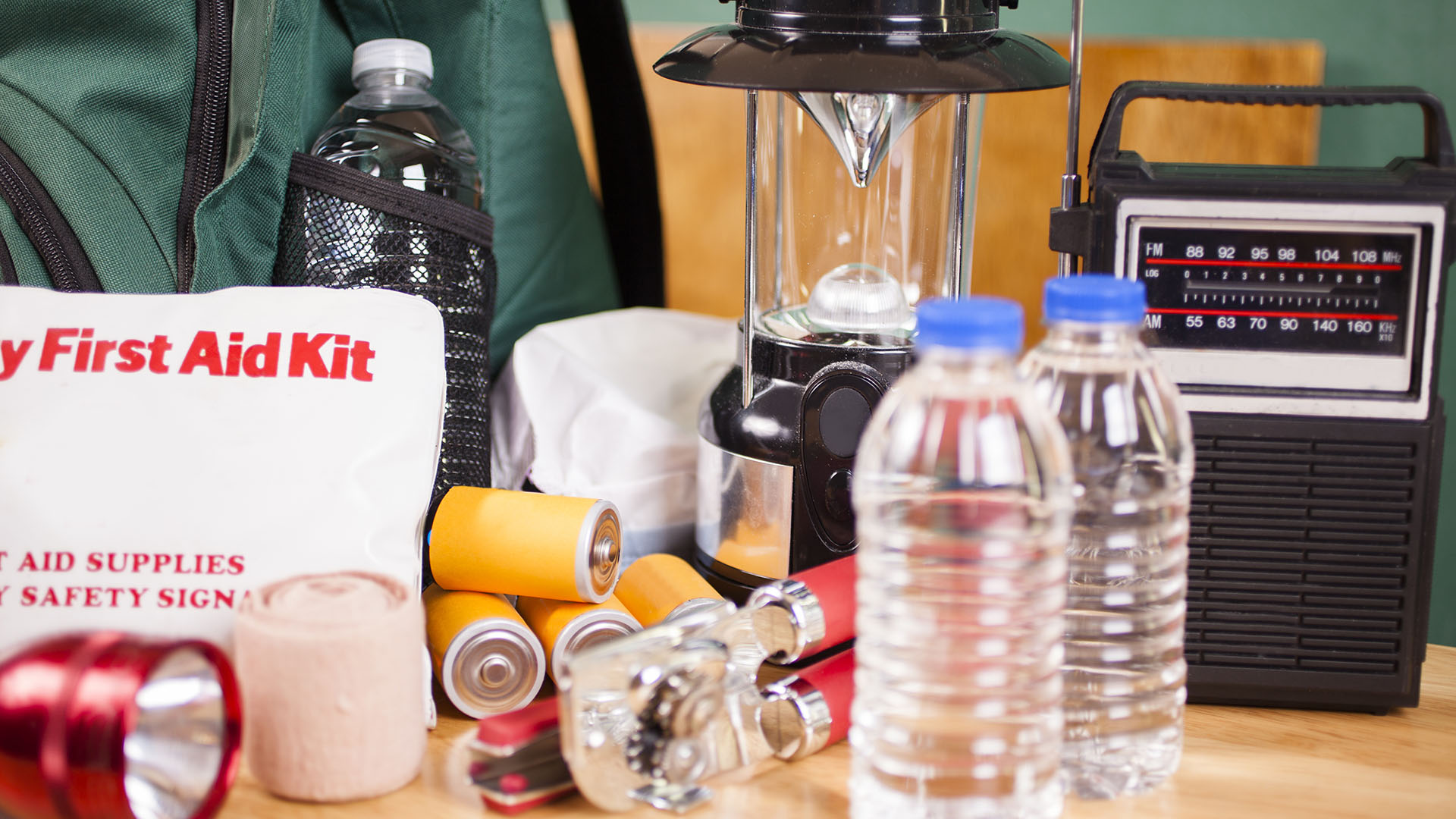While we’ve already seen the start of hurricane season in July, The Weather Channel is predicting the true season to start in just two weeks. Hurricanes and other severe storms can pose a serious safety risk, especially to those who are not adequately prepared. Knowing what steps need to be taken when sheltering in place is never a consideration that should be left to last minute or to chance. Serious storms have the potential to cause extensive damage not only to infrastructure but to the equipment needed to deliver electricity to our homes. Knowing how to best prepare for power outages can be of critical importance, especially in situations where outages may last for days or even weeks. And with the most active hurricane month right on our heels, it is time for people in coastal communities to prepare.
Emergency Lighting
Finding a ready source of illumination after a storm or hurricane is often the most pressing concern during an outage. Fumbling around in the dark can complicate every other aspect of storm preparation and leave households unable to react or respond to potential threats effectively. Stocking up on both candles and batteries for battery-powered lights is always essential when preparing for a storm. Inexpensive long-lasting LED lights can often provide a superior alternative to candles, although there are situations where either a flashlight or a candle may be more beneficial and households would do well to stock up on both options. The addition of a crank-operated emergency flashlight or small solar-powered lights and chargers are also a smart move.
Radios, Phones, and Communication
Once a source of illumination has been found, the next priority is restoring communication. Being unable to call for help, receive emergency broadcasts or even access the latest hurricane and weather forecasts during a storm can be very dangerous. Investing in an extra battery or charging storage for smartphones and ensuring that radios can be powered for as long as is necessary can end up making a life-saving difference. Devices that make use of a small solar panel or a hand-crank in order to power a radio or charge a phone battery can be a critical resource during a prolonged outage.
Garage Doors, Security Systems, and Home Access
From the stair lifts needed to assist those who suffer from a mobility impairment to garage doors that may block access to needed supplies within the home, a sudden loss of power could lead to many problems that are often easy to overlook. Taking time to double or even triple check that all access points to the home have been properly secured or to deal with any equipment that may become a potential obstacle or barrier in the event of a power outage is always a smart move. In the event you needed to leave through the garage, you can do this manually. First, make sure the door is closed all the way, then find the emergency cord and pull it to disconnect the garage from the opener. From there, you can lift it manually!
Food, Water, and Medication Storage
While food and water may seem like important concerns, they are actually far less pressing than many households might expect. Some ice and a portable cooler are often all that is needed in order to ensure that the contents of the refrigerator will survive a short-term outage. If you’re anticipating a larger storm that may cause more extensive damage or lasting blackouts, stocking up on canned foods and other items that don’t require refrigeration. Make sure to keep refrigerators and freezers closed unless absolutely needed. Try to keep a cooler for things you might want to access regularly. You can fill the cooler with baggies filled with water that can be frozen prior to the storm to work as an ice pack at first and later as drinking water. This is a way to store as much water with one box of plastic bags and save money when bottled water is in short supply – it also helps eliminate waste.
After the hurricanes in Puerto Rico and Houston, people had issues with their health because their medications needed to be cold. Check to see if your medication needs to be at a certain temperature or cooled, so you can pack it safely in the fridge or cooler. The Federal Emergency Management Agency (FEMA) says that a refrigerator will keep food and other items like medication cold for about four hours. A full freezer will keep the temperature for about 48 hours. So if you need to keep your medication cool, you can transfer it to the freezer once it’s not as cold.
Staying Focused and Organized During Storm Preparation
Hurricanes are often a far more serious threat than many home and property owners might expect. Proper preparations can go a long way towards ensuring that the storm and its aftermath can be weathered with greater ease, superior comfort, and minimal risk. Creating and maintaining a checklist will help you minimize the chances that something important may go overlooked and will help to ensure that households know what do to both before and after a storm.
